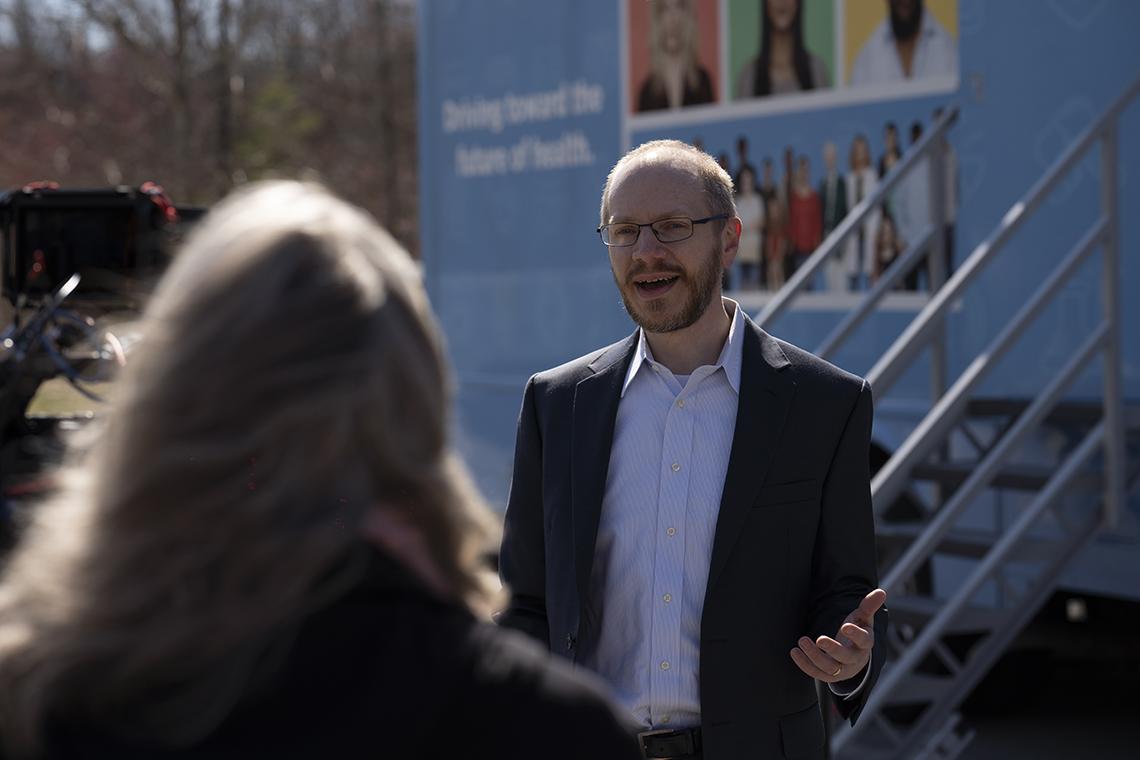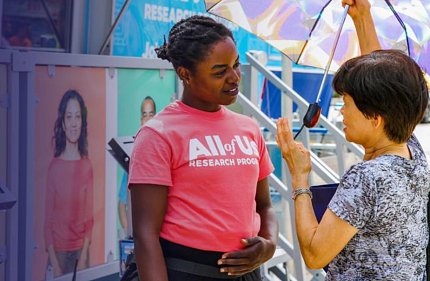All of Us Research Program Ready to Address Chronic Disease, Nutrition
NIH’s All of Us Research Program is positioned to accelerate research on how chronic conditions are defined, diagnosed and treated, said Dr. Joshua Denny, the program’s CEO.
For several years, All of Us has worked to build one of the largest health databases in the world. Denny said, “We have participants from all 50 states and most U.S. territories and the data is accessible to more than 16,000 researchers.”
The information generated will accelerate health research and medical breakthroughs, enabling personalized medicine, which is “how we treat each patient the best way for themselves.” Denny said he wants to make medicine as precise as getting prescription glasses—“it should be the same thing for screening, preventive care and disease treatment.”
The All of Us dataset includes participant-provided information, including data from surveys, wearables, physical measurements taken at the time of participant enrollment and electronic health records. This thorough approach helps researchers get a more complete picture of factors that affect health and disease.
“We have about 3.2 billion base pairs in our genome. We’ve observed about half a billion variants that have never been seen before,” Denny said. “This knowledge will help people understand their genetic tests and influence their treatment in the future.”
The program is also conducting the world’s largest precision nutrition study, he said. They are developing algorithms that predict individual responses to food and dietary patterns. It will build on recent advances in biomedical science including artificial intelligence (AI) and microbiome research. These advances provide unprecedented opportunities to generate new data that provides insight into personalized nutrition.
“I became a physician before I knew the story of personalized medicine,” Denny said. “I saw patients and their care didn’t go like I’d expected. For instance, some patients had heart attacks at young ages. I can’t tell you what a horrible feeling it is when a patient dies even though you followed the treatment guidelines perfectly.”
That feeling left him as he learned how genetics and other factors like diet and exercise could predict a patient’s health outcomes more accurately.

Denny’s personal experience with disease inspired him to become a doctor. His grandparents had four children who died from cystic fibrosis, a once-fatal genetic disorder that causes serious damage to the lungs. In 1989, scientists identified the gene variant that causes the disease and, by 2013, researchers discovered the first drug to treat it. At that time, patients lived into their 30’s or 40’s. Today, 90 percent of all cystic fibrosis cases are treatable.
“That’s part of why I got into medicine,” he said. “Why can’t we do what we did for cystic fibrosis for cancer, heart disease, high blood pressure or diabetes?”
Many of these chronic diseases are composed of different subtypes. Knowing the specific type can help doctors screen for disease and better treat disease when it happens. For example, certain populations have a three-to-four-fold increased risk of developing kidney disease; 70% of that risk is due to a genetic variant.
“Our data helped identify a way to treat kidney disease patients with that genetic variant. Clinical trials are underway to test the drug,” Denny said. “We can help better understand chronic disease, learn how to treat it and develop new therapies.”
Growing up, Denny built computers and wrote software programs as a hobby. During his third year of medical school, he combined his interest in computer programming and medicine. He realized computers could help doctors treat patients more effectively.

Before he came to All of Us, Denny was a practicing physician and held several leadership positions at Vanderbilt University Medical Center. While there, Denny and his colleagues created an AI-based tool that predicted a patient’s probability of needing certain medications based on their medical history and recommended genomic testing if the future probability was high enough. If a patient developed high cholesterol or had a heart attack, for example, the tool could accurately predict which drug a patient needed to take.
Before this tool, there was no way a provider could consider a patient’s genetic data and prescribe the best medication. “A computer needs to do that,” he said. “We can’t keep all that genetic information in our heads and accurately adjust the dosage.”
Denny believes AI has a role in helping care get better. These AI models will need large datasets that can be securely analyzed.
“All of Us is filling gaps that have never been filled before,” Denny concluded. “We’re an incredible resource. Our impact is on an exponential curve. We’re very excited to carry this momentum into the future.”
